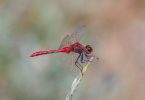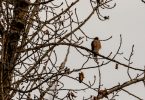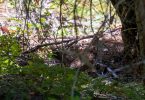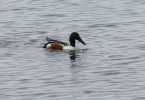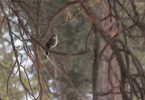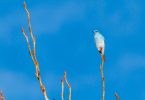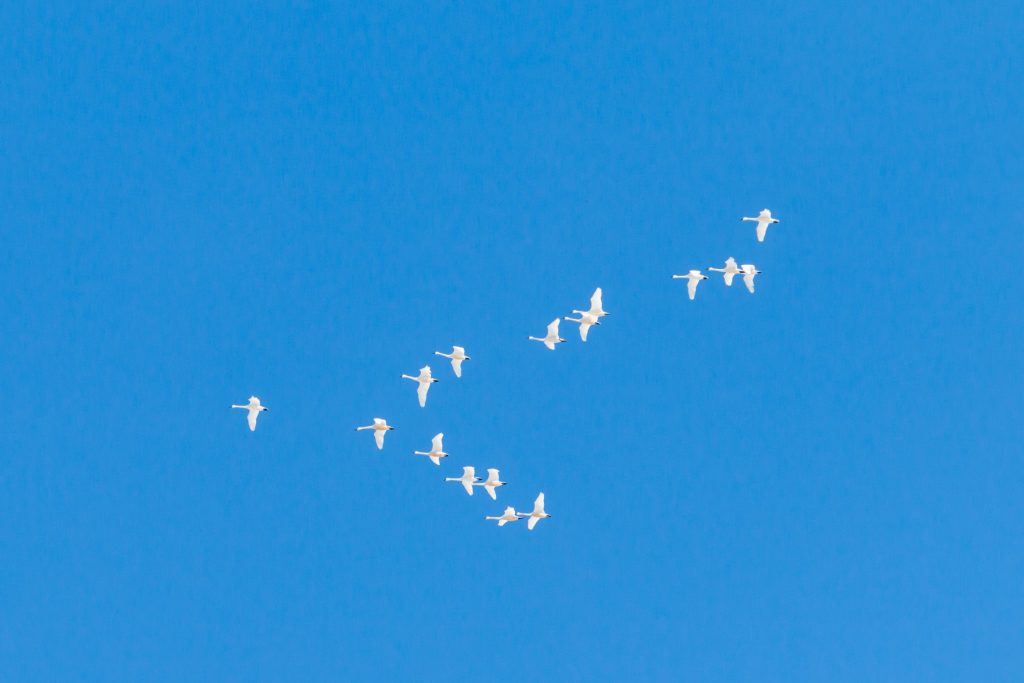
Look up to see migration in action
Tundra Swan (Cygnus columbianus) were flying northward yesterday. I saw four small groups. Identity was confirmed by the calls. Sibley (2014) describes the call as a “melancholy, hollow kloo” while Armistead and Sullivan (2016) characterize the sound as a “pleasant, whistled, hollow woo“.
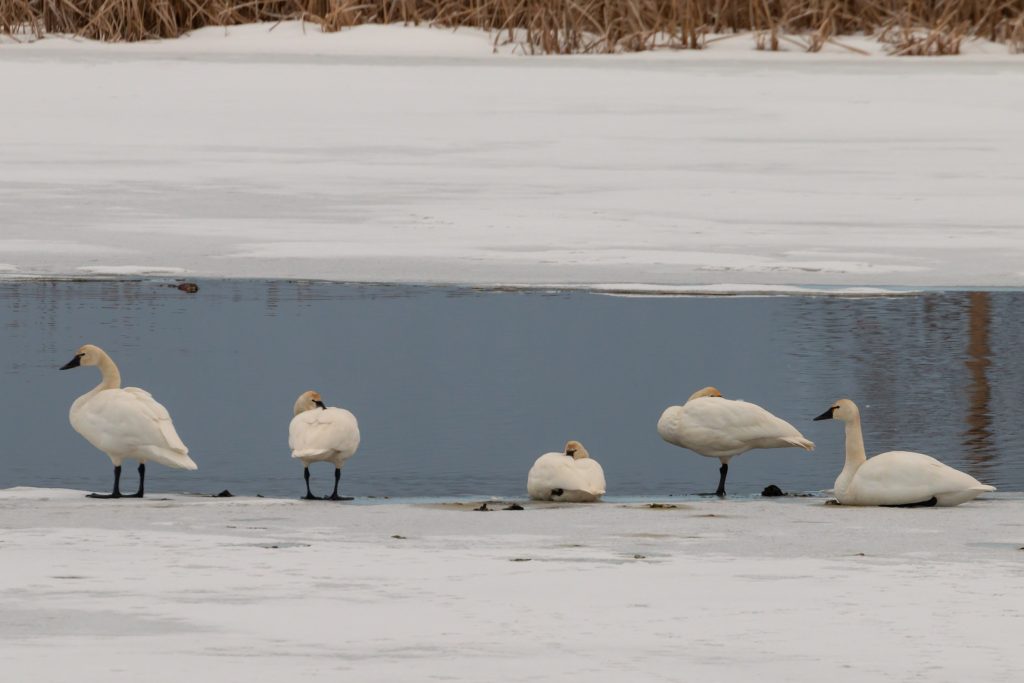
Of course, actually seeing a field mark is a surer, more confident identifier. The above photo highlights the fact that the diagnostic yellow spot, tear drop in position and shape can be much reduced in size and even missing. If it is there, it is a Tundra and not a Trumpeter Swan (Cygnus buccinator).
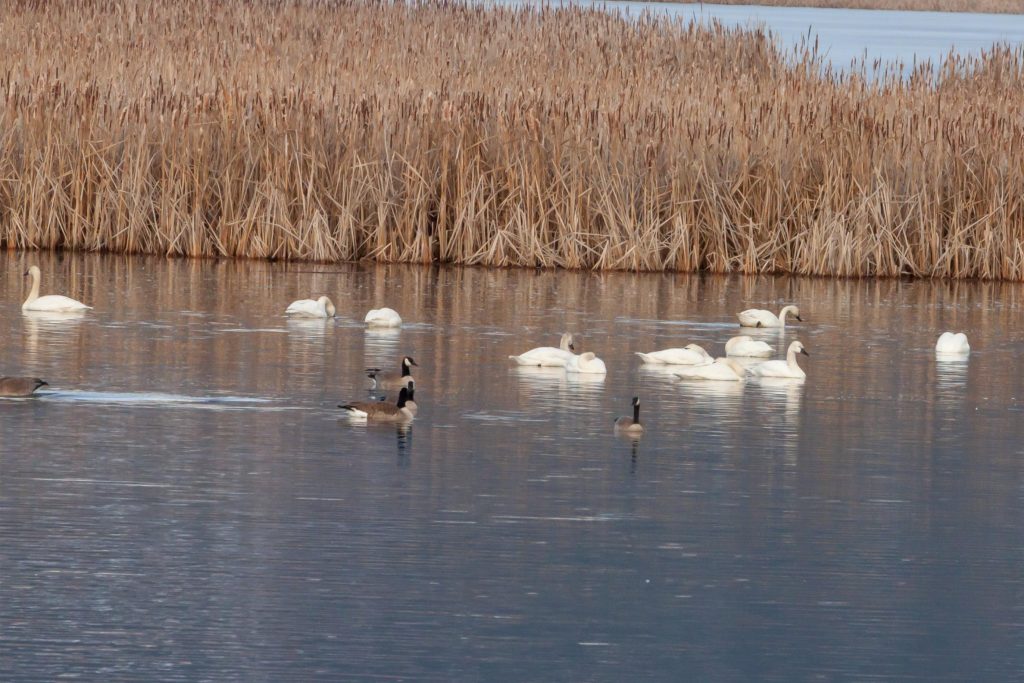
Overall size can be a field mark if in comparison with objects of known size. The photo above shows Tundra Swan close to a group of Canada Geese (Branta candensis parvipes). This particular Canada goose subspecies is medium in size for the species detailed by David Sibley. Trumpeter Swan is really much bigger and would dwarf the Canada Goose and easily separable from the Tundra.
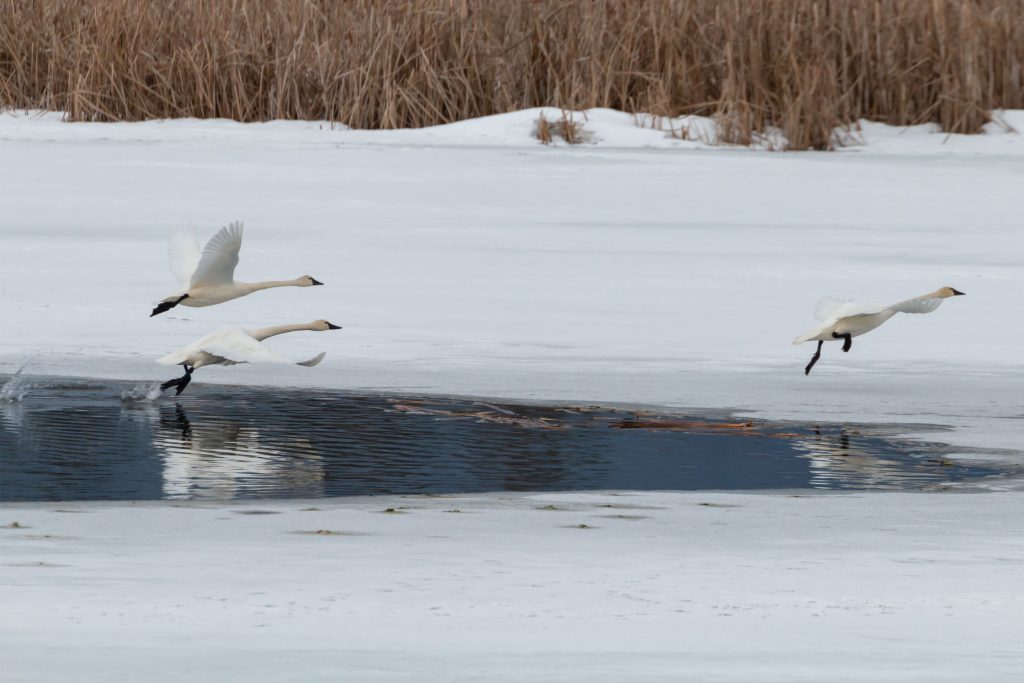
There is no best look of these birds, but seeing these birds taking off is…well, really cool! I encourage you folks in the northern third of the U.S. or Canada to find a wetland or look up frequently over the next couple weeks to see these beautiful birds on their travels northward to the tundra.

